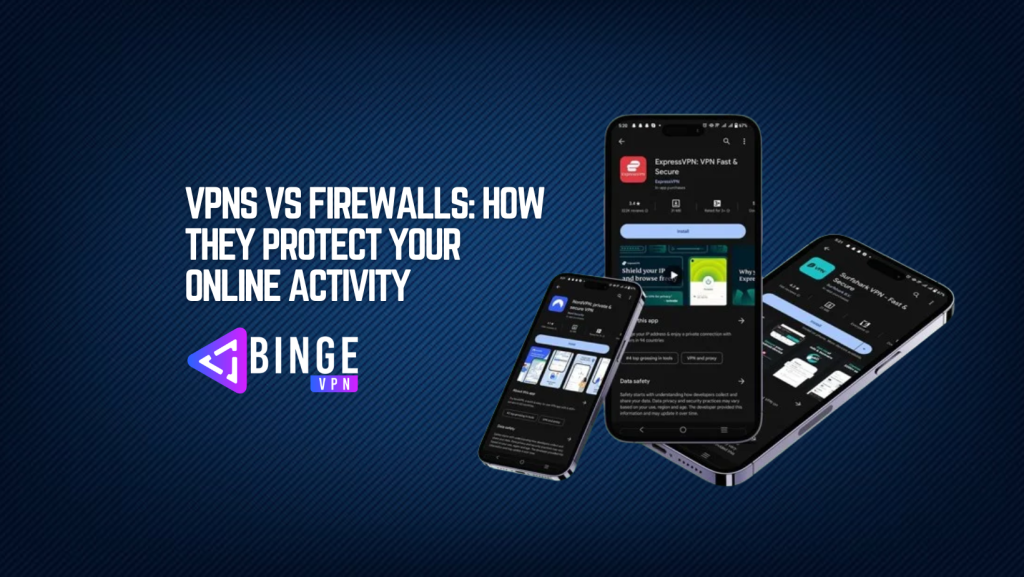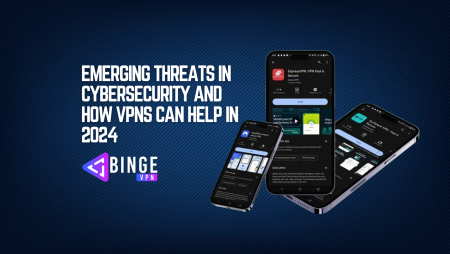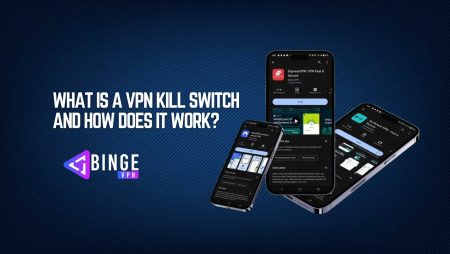In today’s increasingly digital world, safeguarding your online privacy and data is more important than ever. With cyber threats on the rise and personal information at risk, many are turning to solutions like Virtual Private Networks (VPNs) and firewalls to protect their online activities. Both offer strong security measures but serve different purposes, which can lead to confusion about how each works and how they complement one another. This guide will break down the key distinctions between VPNs and firewalls, explain their individual roles in data protection, and help you decide when and why to use them. By the end, you’ll be more confident in choosing the right tools for your cybersecurity needs.
What is a VPN?
A VPN is a technology that allows you to create a secure connection to another network over the internet. Originally developed to allow remote workers to securely access a company’s internal network, VPNs are now widely used by regular internet users to protect their online activity and maintain privacy.
When you connect to a VPN, your internet traffic is routed through an encrypted tunnel to a server operated by the VPN provider. This masks your IP address and makes it appear as though your connection is coming from a different location. As a result, VPNs are commonly used to bypass geo-restrictions, prevent online tracking, and protect against cyberattacks.
How a VPN Protects You?
- Encryption of Data: VPNs use encryption to secure your internet traffic. This means that any data sent between your device and the VPN server is scrambled and unreadable to anyone trying to intercept it. Even if a hacker manages to capture your data, they won’t be able to decrypt it without the encryption key.
- IP Address Masking: VPNs hide your real IP address and assign you a new one from the VPN server’s location. This makes it difficult for websites, advertisers, or malicious actors to track your online activities or pinpoint your exact location.
- Anonymity and Privacy: VPNs offer an added layer of anonymity. By using a VPN, you make it harder for internet service providers (ISPs), websites, and third parties to monitor your browsing habits, keeping your online identity private.
- Bypassing Geo-restrictions: VPNs can change your virtual location, allowing you to access content that may be blocked or restricted in your region, such as streaming services or websites.
What is a Firewall?
A firewall is a security system designed to protect your network or device by monitoring and controlling incoming and outgoing traffic. Firewalls act as a barrier between a trusted internal network and untrusted external networks, such as the internet. They block unauthorized access and help prevent cyberattacks by filtering potentially dangerous traffic.
Firewalls can be hardware-based (like physical routers) or software-based (installed on your computer or device). They work by applying a set of rules to incoming and outgoing network traffic, deciding whether to allow or block certain types of data based on those rules.
How a Firewall Protects You?
- Traffic Filtering: Firewalls monitor all data entering and leaving your network and filter it based on predefined rules. If suspicious or dangerous data tries to access your system, the firewall blocks it. For example, if a hacker tries to send malware into your network, the firewall can stop the attack before it reaches your device.
- Blocking Malicious Websites: Firewalls can prevent you from accessing websites known to contain malware or other harmful content. They protect users from phishing attacks, ransomware, and other types of malware that could compromise your security.
- Intrusion Prevention: A firewall actively monitors your network for unusual or suspicious activity that could indicate a cyberattack. If it detects an attempt to breach your network, it can automatically block the traffic and alert you to the threat.
- Application Control: Firewalls can control which applications are allowed to communicate over your network. This means you can block certain apps or programs from accessing the internet, reducing the risk of unauthorized data leaks or cyberattacks.
VPNs vs. Firewalls: What’s the Difference?
While both VPNs and firewalls are designed to protect your online activity, they work in very different ways and offer different types of protection. Here’s a breakdown of the key differences between VPNs and firewalls:
- Functionality:
- VPNs focus on protecting your privacy by encrypting your data and hiding your IP address. They are mainly concerned with securing your internet connection and keeping your identity and browsing activity private.
- Firewalls focus on network security by filtering traffic and preventing unauthorized access to your network or device. They block harmful traffic and prevent cyberattacks from reaching your system.
- Protection Scope:
- VPNs protect your data as it travels across the internet, ensuring that it remains encrypted and secure from potential eavesdroppers, hackers, or government surveillance. They are ideal for ensuring privacy on public Wi-Fi or accessing geo-restricted content.
- Firewalls protect your device or network from unauthorized access and cyberattacks by controlling what traffic is allowed in or out. They act as a gatekeeper, ensuring only legitimate traffic gets through.
- Use Cases:
- VPNs are best for protecting your online privacy, bypassing geo-restrictions, and ensuring secure communication over untrusted networks (like public Wi-Fi). They are commonly used by remote workers, frequent travelers, and privacy-conscious users.
- Firewalls are best for protecting your network from external threats, such as malware, hackers, and viruses. They are an essential part of any home or business network security setup and are typically used alongside other security tools like antivirus software.
Can You Use a VPN and Firewall Together?
Yes, you can, and should use both a VPN and a firewall together to maximize your online security. These two tools complement each other by offering different layers of protection.
- VPNs protect your data as it travels across the internet by encrypting it and hiding your IP address. This is particularly important when using unsecured networks like public Wi-Fi or when you want to access geo-blocked content.
- Firewalls protect your device or network from external threats by controlling what traffic is allowed in and out. They prevent cyberattacks and malware from reaching your system and keep your network secure.
By using both a VPN and a firewall, you can ensure that your online activity is private, your data is encrypted, and your network is protected from unauthorized access.
Which One Should You Choose?
If you’re wondering whether to use a VPN or a firewall, the answer depends on your specific needs.
- If privacy and online anonymity are your top priorities, a VPN is the best choice. VPNs are excellent for securing your internet connection, hiding your IP address, and encrypting your data. They are essential for anyone concerned about government surveillance, online tracking, or accessing geo-restricted content.
- If network security and protection from cyberattacks are your primary concerns, a firewall is the right option. Firewalls provide comprehensive protection against malware, phishing attacks, and unauthorized access to your network. They are crucial for anyone running a business or managing a home network.
- For maximum security, using both a VPN and a firewall together is the ideal solution. A VPN will keep your data private and secure, while a firewall will protect your network from external threats.
Final Thoughts
VPNs and firewalls are both essential tools for protecting your online activity, but they serve different purposes. VPNs excel at providing privacy and anonymity by encrypting your data and masking your IP address, while firewalls focus on securing your network by filtering traffic and blocking cyberattacks.
By understanding the strengths of each tool, you can choose the right solution based on your needs. Whether you’re looking to secure your internet connection, protect your personal information, or safeguard your network from malware, using both a VPN and a firewall together will provide the most comprehensive protection.
FAQs
Can I use a VPN and a firewall at the same time?
Yes, using both a VPN and a firewall together provides enhanced security by protecting your data and network.
Does a VPN slow down my internet?
A VPN can slightly reduce internet speed due to encryption, but premium VPNs like ExpressVPN or NordVPN minimize this impact.
Can a firewall prevent all cyberattacks?
While firewalls provide strong protection, they are not foolproof. It’s best to use them alongside other security tools like antivirus software.
Do I need a firewall if I have a VPN?
Yes, a VPN and a firewall serve different purposes, and using both will provide more comprehensive protection.
Are free VPNs as effective as paid ones?
Free VPNs often have limited features, slower speeds, and weaker security. Paid VPNs like ExpressVPN and NordVPN offer better performance and protection




